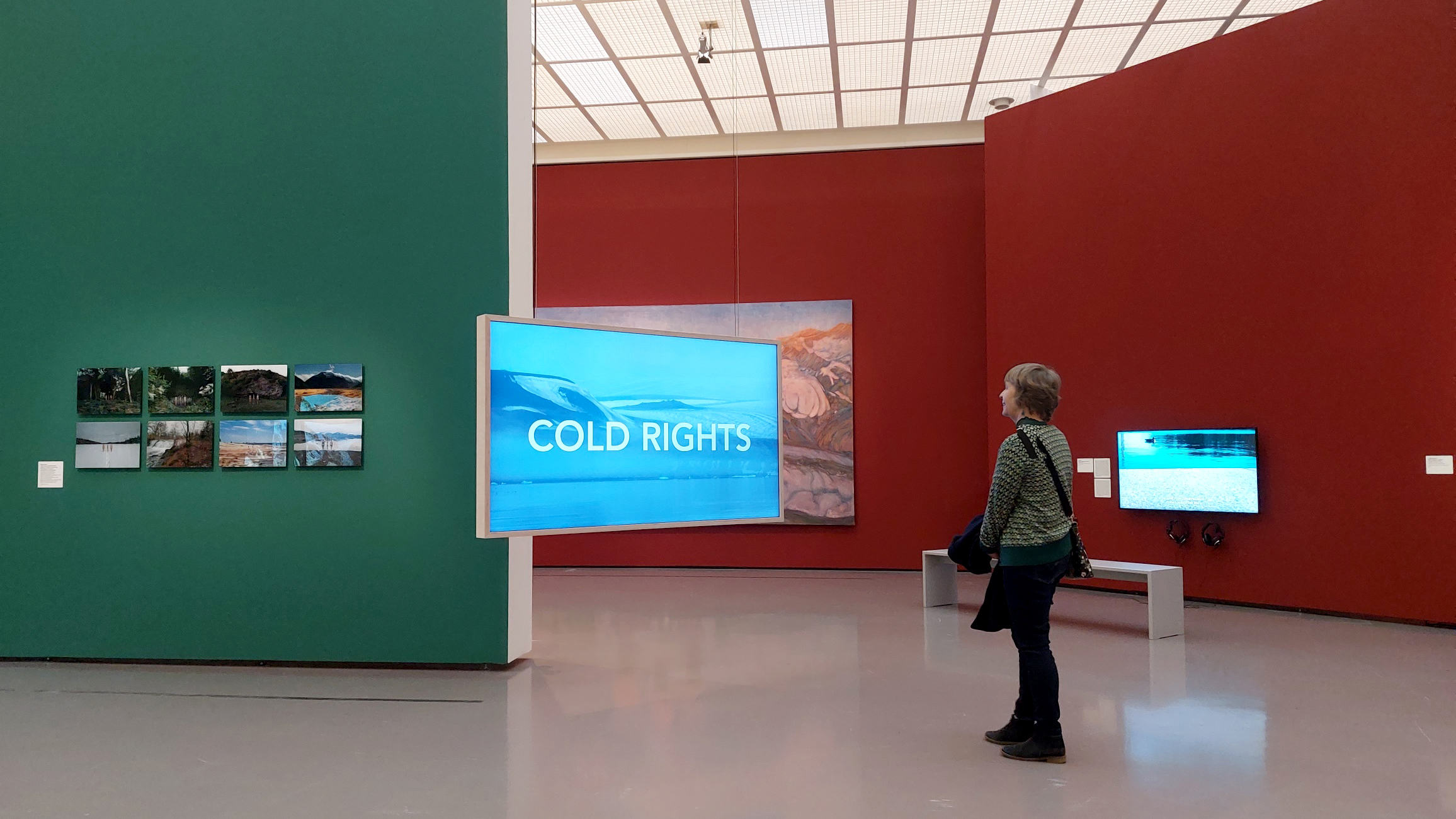From the thawing of permafrost to the melting of polar ice caps, from the disintegration of sea ice to the disappearance of mountain glaciers, the changing material state of ice has direct consequences for rights-based thinking and action under the accelerated conditions of global warming. The “right to be cold” is one such provocation.
This demand, as it was popularly referred to, was dismissed by the Inter-American Commission on Human Rights in 2005 when Inuk activist Sheila Watt-Cloutier filed a petition “Seeking Relief From Violations Resulting from Global Warming Caused By Acts and Omissions of the United States” on behalf of herself and sixty-two Inuit people living in the Arctic regions of Canada and the USA. Yet the transformation of a thermostatic condition into a political and legal claim for “cold rights” has never been more urgent. Cold politics thus demands an engagement with a climatic sense of justice rather than a partitioning of rights.
Produced as an introduction to the three COLD CASES focusing on the weaponisation of cold.
Climate Action Festival, Lewes (25 June 2024)
LSE (26 February 2024)
Congreso Internacional de Arts + Ciencia: Las Aquas, Buenos Aires (06.11.2023)
Minority Report, etc. galerie, Prague (20-28 09.2022)
Figuring Bodies of Water, Outdoor Screening Barbican (25.08.2022)
Apropos Hodler, Kunsthaus Zurich (2024)
Re/Sisters, FOMU, Antwerp (2024)
Re/Sisters, Barbican (2023-24)
Motores del Clima, Laboral Centro de Arte y Creatión Industrial, Spain (2023-24)
The Big Picture, Halle, Leipzig (2023)
Weather Engines, Onassis Stegi, Athens (2023)
Berlin Biennale (2022)
Weather Engines, Onassis Stegi, Athens (2022)
This demand, as it was popularly referred to, was dismissed by the Inter-American Commission on Human Rights in 2005 when Inuk activist Sheila Watt-Cloutier filed a petition “Seeking Relief From Violations Resulting from Global Warming Caused By Acts and Omissions of the United States” on behalf of herself and sixty-two Inuit people living in the Arctic regions of Canada and the USA. Yet the transformation of a thermostatic condition into a political and legal claim for “cold rights” has never been more urgent. Cold politics thus demands an engagement with a climatic sense of justice rather than a partitioning of rights.
Produced as an introduction to the three COLD CASES focusing on the weaponisation of cold.
SCREENINGS
Climate Action Festival, Lewes (25 June 2024)
LSE (26 February 2024)
Congreso Internacional de Arts + Ciencia: Las Aquas, Buenos Aires (06.11.2023)
Minority Report, etc. galerie, Prague (20-28 09.2022)
Figuring Bodies of Water, Outdoor Screening Barbican (25.08.2022)
EXHIBITIONS
Apropos Hodler, Kunsthaus Zurich (2024)
Re/Sisters, FOMU, Antwerp (2024)
Re/Sisters, Barbican (2023-24)
Motores del Clima, Laboral Centro de Arte y Creatión Industrial, Spain (2023-24)
The Big Picture, Halle, Leipzig (2023)
Weather Engines, Onassis Stegi, Athens (2023)
Berlin Biennale (2022)
Weather Engines, Onassis Stegi, Athens (2022)

HD video, colour with stereo sound, 2022, 13:43 mins. Installation view in the exhibition Apropos Hodler, Kunsthaus Zurich, 2024. Image courtesy: Urs Schuppli
WORKS